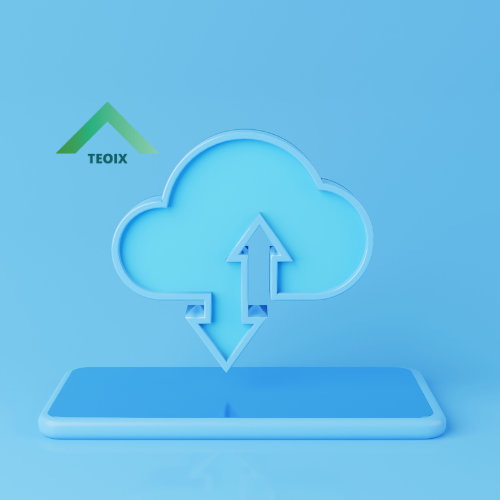Why Cloud Computing is the Future?
CLOUD COMPUTING
5/24/20243 min read


The way people engage with technology and how businesses run have both been completely transformed by cloud computing. Cloud computing is at the vanguard of technological advancement as we move into a time where digital transformation is required, not just an option. Cloud computing is positioned to influence everything from home computers to business operations in the future for a number of reasons.
Flexibility and Scalability
Scalability is one of the biggest benefits of cloud computing. In contrast to traditional IT infrastructure, which necessitates a significant hardware investment for capacity expansion, cloud services let companies easily scale up or down their operations. This adaptability is essential for companies whose demand varies. For example, cloud computing allows e-commerce businesses to handle traffic spikes that occur during the holiday season, when they would otherwise have to overinvest in infrastructure that would remain idle for the majority of the year.
Economy of Cost
Another factor propelling cloud computing adoption is cost effectiveness. Traditional IT installations cost a lot of money in terms of upkeep, software, and hardware. On the other hand, cloud computing uses a pay-as-you-go paradigm, turning capital costs into operating costs. This change enables businesses to more efficiently manage resources while also lowering upfront expenditures. Moreover, cloud service providers manage the upkeep and upgrading of cloud infrastructure, relieving enterprises of this responsibility and enabling them to concentrate on their primary business operations.
Improved Cooperation and Availability
Increased accessibility and collaboration are made possible by cloud computing. Team members may collaborate and access information from any location in the world using cloud-hosted data and apps. This is especially helpful in the increasingly international workplace of today, when remote work and cross-border cooperation are the norm. Cloud-based solutions, such as Google Workspace and Microsoft 365, provide real-time collaboration, hence increasing productivity and efficiency.
Safety and Adherence
Businesses have long prioritized security when it comes to their IT infrastructure. To safeguard the data of their customers, cloud service providers make significant investments in security measures, frequently putting in place more stringent security measures than the majority of businesses could afford on their own. Furthermore, cloud providers regularly upgrade their security protocols to adhere to the most recent laws and guidelines, guaranteeing that companies maintain industry compliance without having to handle these modifications themselves.
Inventiveness and a Competitive Advantage
Innovation is encouraged by the agility that cloud computing offers. Companies do not need to go through the drawn-out procedures of traditional IT infrastructure setup and purchase when developing, testing, and implementing new apps. Being the first to offer new and enhanced services is frequently the key to remaining ahead of the competition in today's fast-paced business environment, therefore speed to market is crucial. Modern technologies like artificial intelligence (AI), machine learning (ML), and big data analytics are also accessible through cloud platforms, allowing companies to use these resources to improve customer experiences, gather insights, and streamline operations.
Sustainability of the Environment
Cloud computing, as opposed to traditional IT infrastructure, offers a more sustainable alternative as environmental concerns become increasingly apparent in society. Because they may take use of economies of scale to lower overall energy consumption, cloud data centers are usually more energy-efficient. In order to power their operations, providers are also investing more in renewable energy sources, which helps companies lower their carbon impact. Businesses are helping to create a more sustainable IT ecosystem by moving to the cloud.
Recovery from Disasters and Business Continuity
Robust solutions for business continuity and catastrophe recovery are offered by cloud computing. Cloud service providers provide backup and recovery solutions to guarantee data availability and integrity even in the case of cyberattacks, natural catastrophes, or hardware malfunctions. Maintaining corporate operations and safeguarding sensitive data depend on this dependability. Businesses may reduce downtime and bounce back from disruptions fast by employing cloud-based disaster recovery solutions, protecting their operations and brand.
IT Infrastructure for the Future
Finally, cloud computing provides an IT infrastructure solution that is future-proof. Businesses require an IT system that can keep up with the rapid advancements in technology. Cloud service providers make sure that their customers have access to the newest technology without having to make large additional investments by regularly upgrading their infrastructure and services. Businesses may maintain their agility and competitiveness in a rapidly evolving technical landscape by implementing this cycle of continuous improvement.
In summary
Ultimately, cloud computing is without a doubt the way that business and IT will operate in the future. It is an essential part of any modern corporate strategy because of its scalability, cost-effectiveness, improved collaboration, security, potential for innovation, environmental benefits, strong disaster recovery capabilities, and future-proofing qualities. Businesses that use cloud computing will be better positioned to take advantage of new possibilities, adjust to changes, and spur growth in a world that is becoming more interconnected as the pace of digital transformation quickens.


